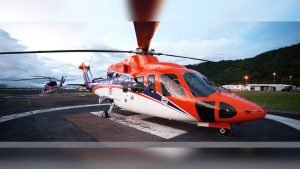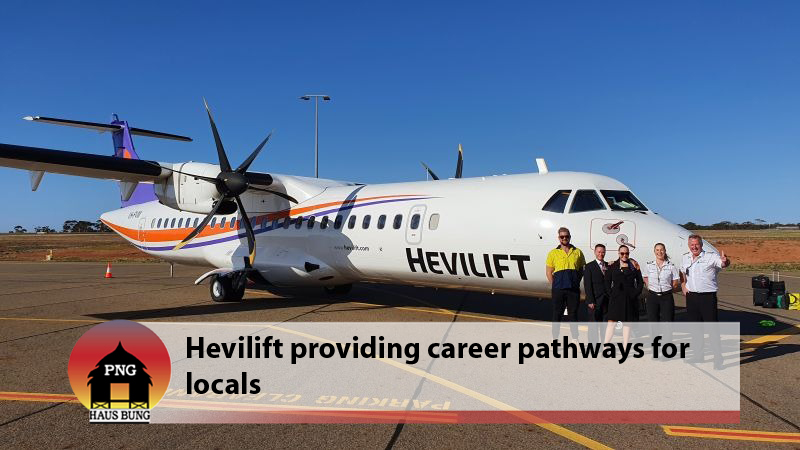Aviation operator HEVILIFT will again declare strong dividends for shareholders in coming months,
underpinned by the soaring success of its investment in community initiatives.
HEVILIFT Director John Tuaim said the company had created a long-term talent pipeline through its pilot
and engineering cadetship program, delivering significant social and financial returns.
“We are proud to support the communities in Papua New Guinea through our pilot training and
engineering apprenticeship programs,” Mr Tuaim said.
“Our training program gives local people the opportunity to access world-class industry training and
secure a career with a leading aviation company.
“HEVILIFT also supports the community by declaring dividends, which go to local
landowner beneficiaries for use in community investments and infrastructure development projects like
schools,” he said.
Since its establishment, the HEVILIFT training program has provided career pathways for local people,
employing 10 cadet pilots and six apprentice engineers.
HEVILIFT commits to ensuring the costs of flight and engineering training are not prohibitive to the
pursuit of careers for aspiring aviators, offering financial assistance to cadets and trainees.
Head of Flight Operations Dirk Markesteijn said the cadetship program would form a critical part of
HEVILIFT’s rebound from the COVID-19 lockdowns that have devastated the aviation industry.
“The aviation industry, especially in Papua New Guinea where the terrain is very difficult, needs skilled
pilots and engineers, and the HEVILIFT program ensures our staff have the training they need to
succeed,” Mr Markesteijn said.

“With COVID, we know that many aspiring pilots have had to think twice about entering the aviation
industry. Once the industry does recover, we want to be ready with a skilled team ready to take to the
skies.
“We are proud to be a business that supports local people and positively impacts the communities in
which we operate,” he said.
In 2020, HEVILIFT commenced further community initiatives, establishing of an environmental plan
and carbon program to offset its emissions.
Mr Tuaim said a tree planting project was among the environmental initiatives designed to benefit the
community and contribute to a greener future.
“We partner with local businesses to plant approximately 1,000 native trees per month in the highlands
of Papua New Guinea, providing revenue and employment to the community,” Mr Tuaim said.
“Tree planting is only the beginning of our commitment to a more sustainable future, and part
one of an ongoing plan to look for opportunities to contribute to growing the community.”
Picture source: MRDC

